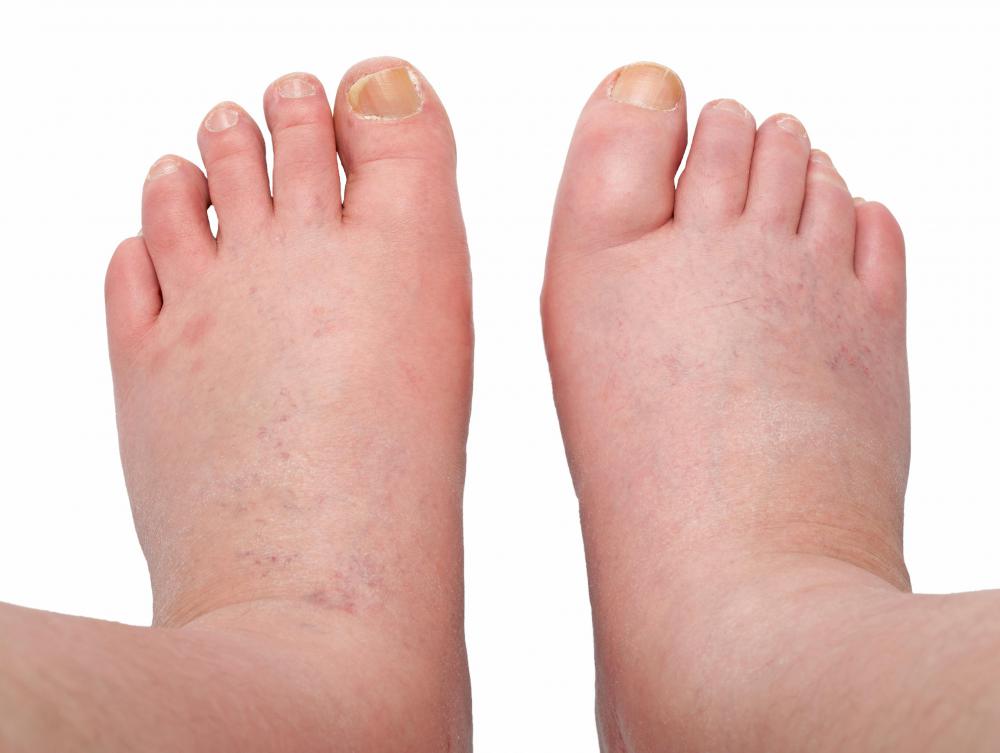At TheHealthBoard, we're committed to delivering accurate, trustworthy information. Our expert-authored content is rigorously fact-checked and sourced from credible authorities. Discover how we uphold the highest standards in providing you with reliable knowledge.
What is Peripheral Edema?
Peripheral edema refers to swelling in the body's extremities. Most commonly it affects the legs and feet. The direct cause of edema is the accumulation of fluid within the tissue of the affected body parts. There are many underlying causes that can produce this outcome.
One of the most common causes of peripheral edema is old age. Aging is also associated with a number of more specific causes. These include varicose veins and other problems with circulation in the legs. Rheumatoid arthritis can cause edema via inflammation. Sitting or standing without moving for a long period of time can be enough to cause this condition.

Other potential causes include burns, bites or stings, clots, infections, and lymphatic obstructions. Swelling can result from any modification to the pressure of fluid or tissue in the legs, including inflammation, blood vessel pressure, lymphatic pressure, and other changes. All of these factors combine with the effect of gravity, which explains why the legs and feet are the most common targets of edema.

The hormones associated with pregnancy and menstruation, also found in various medications, can induce the condition in some women. There are other drugs that can cause the condition as well, in particular blood pressure medication and steroids. Some kinds of antidepressants can cause peripheral edema. These include monoamine oxidase inhibitors and tricyclics, but not selective serotonin reuptake inhibitors.

Peripheral edema is a common side effect of other more serious medical conditions. Emphysema reduces the ability of the body to acquire oxygen through the lungs, and swelling of the legs and feet can result. Problems with the liver, heart, kidney, and bladder can have similar effects. Altitude sickness, which results from extreme changes in pressure, can cause peripheral and other forms of edema. If a person develops this condition that has no obvious cause and does not go away after moving around, he or she should probably seek medical attention.

There are a few ways to reduce the swelling caused by transient, or temporary, peripheral edema. Raising the legs to drain some of the fluid is a good idea unless the edema resulted from a poisonous bite. Also, try to consume less salt and move the legs. Because this condition has so many different causes, effective treatment will depend largely on diagnosing its particular source. Persistent, or recurring, edema can independently cause neuropathic damage.
AS FEATURED ON:
AS FEATURED ON:


















Discuss this Article
Post your comments